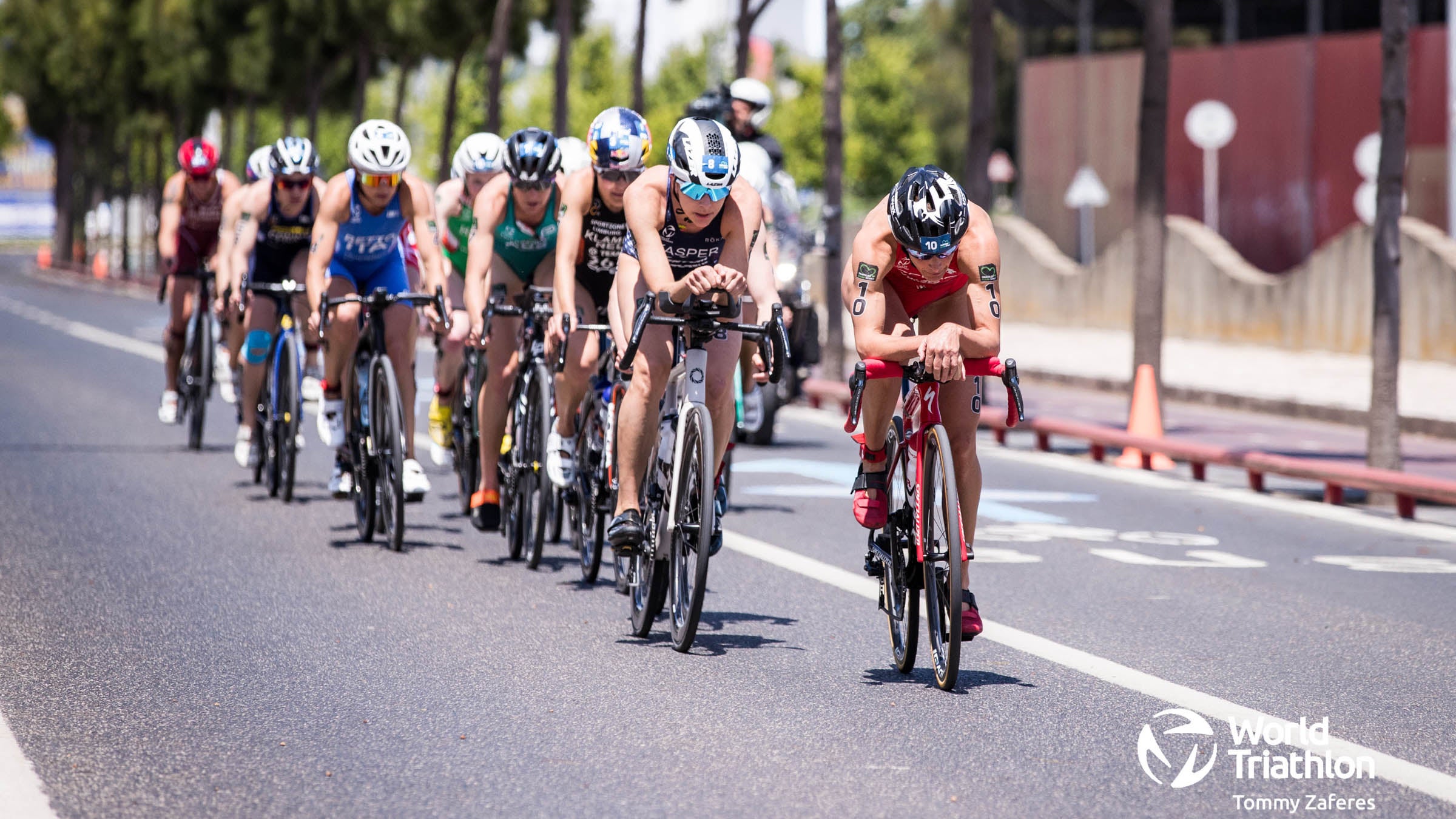Draft-Legal Racing Matters, Not Just During the Olympics

(Photo: Tommy Zaferes)
Once the Olympics are over, the sports we cheer so loudly for all but disappear from mainstream attention—until the next one, four years later. It’s only when someone breaks a world record, or Simone Biles invents a new move, that Olympic sports catch a blip of our attention in non-Olympic years.
It’s even worse for triathlon. Most years, draft-legal racing doesn’t garner nearly as much interest as the Ironman World Championship—especially in the U.S. Some of that has to do with location. Ironman has hosted its main event on American soil every year since 1978. Meanwhile, World Triathlon has only hosted its Championship Series Grand Final in the U.S. once, in Chicago back in 2015.
Then there are the athletes. America’s only gold-medal winning triathlete is no longer a triathlete (Gwen Jorgensen). And World Triathlon athletes are seen very much as representing their countries first, meaning their fanbase is comprised mostly of people from that home country. Ironman athletes, on the other hand, draw fans and interest from all over. The most popular Ironman athletes in the U.S. aren’t, in fact, from the U.S. Lionel Sanders, Jan Frodeno, Daniela Ryf, and Lucy Charles-Barclay draw support and interest from all over the world. With the exception of Alistair Brownlee, it’s rare for a short-course specialist to draw such international attention.
So why should you care about World Triathlon racing during the lull between Tokyo 2021 and Paris 2024? Because it’s still the most exciting form of triathlon there is, and it’s only going to get better in the next three years. Expect to see a lot more sprint-distance races, as well as a major focus on the mixed relay, both of which are very TV-friendly. If you want to bring a sport to the masses, it starts with broadcasting deals—and those are much easier to come by with fast, frantic racing that fits perfectly in a one-hour time slot. There’s a big push within World Triathlon to contest the Olympic triathlon over the sprint distance, and that could happen as soon as 2024.
It’s also where you’ll find the highest concentration of the best triathletes on earth. With hundreds of long-course events all over the world each year, the professional fields tend to get watered down. It’s hard to create a compelling event when there are only three men and two women capable of winning. At nearly every World Triathlon race, there are at least 20 men and women who could win on any given day.
What’s more, among those 20 men and women is likely the next big thing in long-course racing. Daniela Ryf was once a slightly-above-average short courser, and now she’s the greatest Ironman athlete of all time. Jan Frodeno has transitioned from the most unlikely gold medalist in triathlon history to Kona course-record holder. There are plenty of athletes who dove headfirst into long-course without coming up through the World Triathlon ranks first, but the majority of those at the pointy-end of the race in Kona each year started out sharpening their skills in draft-legal racing.
The next three years could see a lot of changes in World Triathlon racing, and every innovation will be aimed at making it a more exciting race that engages fans in person and on live TV: harder courses with punishing climbs; the mixed relay on center stage at marquee venues; federations more open to bringing in athletes from outside the Olympic pipeline. Could an Ironman superstar like Charles-Barclay actually be competitive repeatedly on the circuit? We’ll get our answer over the coming seasons.
There’s never been a better time to be a fan of draft-legal racing. Enjoy the big show in Tokyo this July, but don’t forget that there will be dozens more thrilling races during this once-in-a-lifetime three-year hiatus between Olympics too.